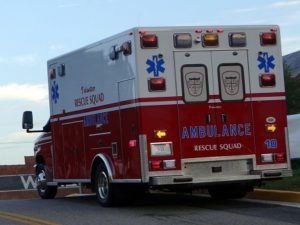No one wants to call 911. No one wants to be that person who is involved in an accident, be it injured or someone who happens onto the scene. But there are ways you can be prepared in the event that it would ever happen. It is easy to let fear take over and have the misconception that by being prepared, you are setting yourself up for something to happen – this is simply not true!
Below are some tips for activating the emergency response system.
- Is the scene safe? You cannot effectively help someone if you become injured yourself. Before ever stepping into the scene, make sure that the environment is safe for you.
- Remain calm. The 911 dispatchers are accustomed to receiving frantic phone calls and will do their job no matter what. However, you remaining calm will allow them to more effectively do their job of assessing the situation and responding appropriately. Do whatever you need to do in order to calm yourself down, as difficult as it may be at the time.
- Who, What, When, Where. The dispatcher will ask a number of questions about what happened. They will ask things like: What is your location? How many people are injured or sick? Is the person conscious? Do you know CPR? Is there an AED onsite?
- Be patient. It is easy to become frustrated with the dispatcher while they are asking what seems like endless questions. Just keep in mind that while you are answering the questions, they are dispatching responders to your location “behind the scenes.”
- Stay on the phone. The dispatcher will want to keep you on the phone while responders are en route to your location. They are on the line to ensure that you remain calm, help the person in need, and confirm that the responders arrive.
- Let EMS take over. A whirlwind of activity will happen once the responders arrive. This is your moment to tell them what happened, if you know, and step aside to let them do what they do best.
- What about cell phones? It is important to know your exact location when calling 9-1-1 from a cell phone, as calls are not traceable. Your location will be tracked using GPS, but that doesn’t always pinpoint to the exact location.

- Don’t program your phone with 9-1-1. It is very easy to inadvertently dial a number from your phone book. Dispatchers receive a number of misdials, and it makes their job more difficult. If you do have your phone programmed, be sure to lock the screen when not in use.
- Pay extra attention if you’re on the highway. In Illinois, you can call *999 from your cell phone for assistance if you or someone else is in a non life-threatening accident. You will need to give the dispatcher the closest highway marker. Give the dispatcher as much information as possible – are any lanes blocked, how many are injured, do any vehicles need to be towed, etc.
- Inactive cell phones can still call 9-1-1. If you have an old cell phone that is no longer under contract, you can still use the phone to call 9-1-1. Keep it charged!
Thanks to Springfield Moms contributor Kari Thevenot for sharing this post











thanks Kari, I didn’t know about the *999 option to report non life threatening situations (like a car broke down on the highway). I always want to report a stranded person (as we all know it might not be safe to stop) but I always felt bad calling 911.